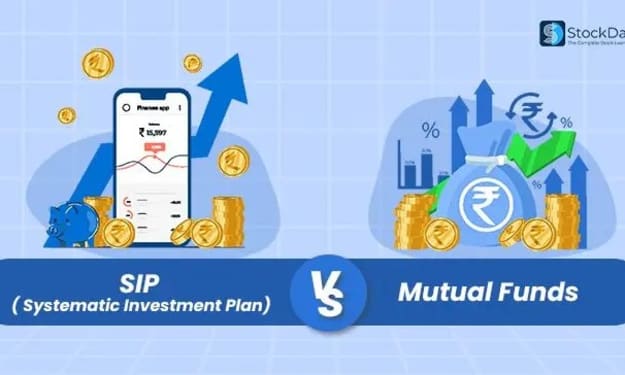What Is SEBI
SEBI is the Indian stock market watchdog. SEBI's full form is the Security and Exchange Board of India which regulates, monitors, and oversees the function of the stock market. SEBI is a financial regulatory body that reports to the Ministry of Finance. For all of us, the assurance about the safety of our investments tends to be the deciding factor of where we invest.

What is SEBI?
SEBI stands for the Securities and Exchange Board of India. It is the regulatory body that oversees the securities market in India. SEBI was established in 1988 as an independent statutory body to regulate and develop the securities market in India.
SEBI's primary function is to protect the interests of investors in securities and to promote the development of, and regulate, the securities market in India. It regulates the securities market through its power to create rules and regulations for issuers, intermediaries, and market participants. It also oversees the functioning of stock exchanges, depositories, mutual funds, and other market intermediaries. The role of SEBI is very important for the Indian markets.
SEBI's key responsibilities include registering and regulating the functioning of market intermediaries, regulating the issuance of securities and takeover of companies, promoting investor education and awareness, and preventing fraudulent and unfair trade practices. The goal of SEBI is to ensure transparency and fairness in the securities market and to promote the development of a healthy and vibrant market that benefits investors and the economy as a whole.
What are the objectives of SEBI?
1. Protecting the interests of investors: SEBI aims to protect the interests of investors in securities by ensuring transparency, fairness, and accountability in the securities market. It promotes investor education and awareness, regulates the functioning of market intermediaries, and prevents fraudulent and unfair trade practices.
2. Regulating and developing the securities market: SEBI regulates the securities market in India by creating rules and regulations for issuers, intermediaries, and market participants. It oversees the functioning of stock exchanges, depositories, mutual funds, and other market intermediaries. It also promotes the development of the securities market by introducing new financial instruments, promoting new technologies, and encouraging foreign investment.
3. Ensuring compliance with regulations: SEBI ensures compliance with its rules and regulations by conducting inspections, investigations, and audits of market participants. It has the power to impose penalties and take legal action against those who violate its rules.
4. Promoting healthy competition: SEBI aims to promote healthy competition in the securities market by preventing monopolistic practices and promoting the entry of new players.
5. Regulating insider trading: SEBI regulates insider trading in securities to prevent the misuse of confidential information and to ensure a level playing field for all investors.
Powers of SEBI
SEBI (Securities and Exchange Board of India) has been granted extensive powers to regulate and oversee the securities market in India. Some of the major powers of SEBI are:
1. Registration of market intermediaries: SEBI has the power to register and regulate various market intermediaries such as brokers, merchant bankers, portfolio managers, investment advisers, and rating agencies.
2. Regulation of securities market: SEBI has the power to regulate the securities market by framing rules, regulations, and guidelines for various participants such as issuers, brokers, mutual funds, and other market intermediaries.
3. Inspection and investigation: SEBI has the power to inspect and investigate the books of accounts, records, and documents of market intermediaries to ensure compliance with its regulations.
4. Enforcement actions: SEBI can take enforcement actions against market participants who violate its regulations. These actions can include imposing fines, suspending or cancelling registrations, and taking legal action against offenders.
5. Issuing guidelines and circulars: SEBI has the power to issue guidelines and circulars for the benefit of market participants and investors.
6. Promoting investor education: SEBI promotes investor education and awareness through various programs and initiatives to protect the interests of investors.
7. Power to prosecute: SEBI has the power to prosecute those who have violated securities laws, and it can launch legal proceedings against them in various courts.
Conclusion
Since SEBI was established with specific authorities from the government, it has ensured that the stock market is a fair place to invest your money, and SEBI has played an important part in making that happen.
About the Creator
Anubhav rai
StockDaddy is India's leading stock learning platform, making it possible for users around the nation to grasp the stock market skills with an ease of choices.






Comments
There are no comments for this story
Be the first to respond and start the conversation.